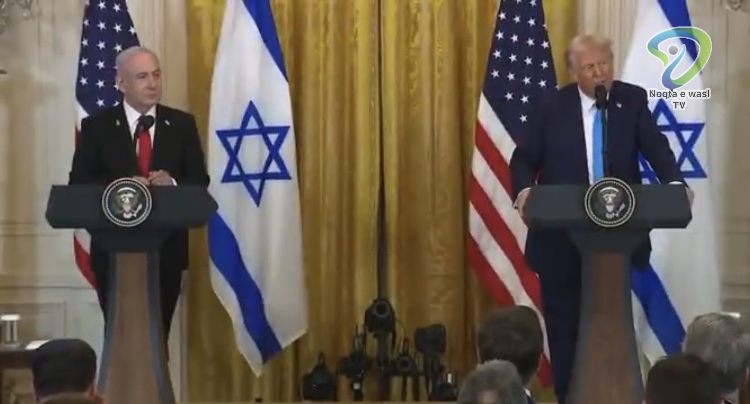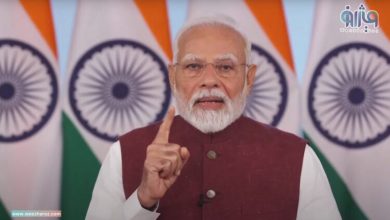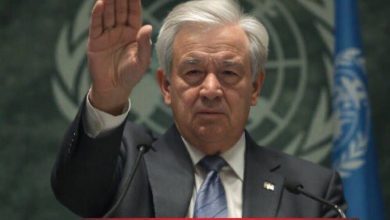Analytical Report: Trump and Netanyahu’s Press Conference on Iran

Weezha Roz-On February 5, 2025, Donald Trump, the President of the United States, and Benjamin Netanyahu, the Prime Minister of Israel, met at the White House and held a joint press conference.
The primary focus of the conference was on Iran and U.S. policies toward the country.
During the event, Trump made contradictory statements about Iran, praising its people while simultaneously emphasizing the continuation of maximum pressure policies.
This report analyzes these statements and their potential implications.
Analysis of Trump’s Statements:
1.Emphasis on Peace and Success for Iran.
Trump initially stated that he wants Iran to be a peaceful and successful country.
He described the Iranian people as amazing, hardworking, and beautiful, and mentioned that he has many friends from Iran.
These remarks appear to be an attempt to create a positive image of himself among the Iranian public and the world. However, these compliments contrast sharply with his hardline policies.
2.Maximum Pressure Policy and Sanctions:
Trump referenced the maximum pressure policy against Iran, claiming that it had brought Iran to the brink of bankruptcy.
He stated that Iran could no longer fund groups like Hezbollah and Hamas and had been forced to focus on its internal welfare.
These comments highlight the continuation of a hostile U.S. approach toward Iran, despite his peace-seeking rhetoric.
3.Opposition to Iran’s Nuclear Weapons:
Trump reiterated his opposition to Iran acquiring nuclear weapons, warning that if Iran moved toward developing such weapons, it would face severe consequences. This stance underscores the U.S. policy of deterrence regarding Iran’s nuclear program.
International Reactions
1.Iran’s Response:
Iranian officials are likely to interpret these statements as an attempt to weaken Iran’s regional position and maintain economic pressure.
However, Trump’s praise for the Iranian people might be seen as a sign of willingness to engage in dialogue.
2.Israel’s Response:
Netanyahu supported Trump’s policies, stating that Israel and the U.S. would work together to prevent Iran from obtaining nuclear weapons.
This position reflects Israel’s full alignment with U.S. policies toward Iran.
3.International Community’s Response:
Some countries and international organizations may view the maximum pressure policy as a factor exacerbating tensions in the region.
Additionally, Trump’s claims about Iran’s near-bankruptcy may contradict the country’s economic realities.
Potential Consequences
1.Escalation of Tensions:
The continuation of the maximum pressure policy could lead to heightened tensions between Iran and the U.S., increasing the risk of military conflict.
2.Impact on Iran’s Economy:
While Trump claimed that Iran is on the verge of bankruptcy, this assertion may be exaggerated. Nevertheless, sanctions will continue to negatively affect Iran’s economy.
3.Diplomatic Opportunities
Trump’s remarks about his willingness to engage in dialogue with Iran could create an opportunity to reopen negotiations between the two countries.
However, the success of such talks would depend on a shift in the U.S. approach toward Iran.
Conclusion
Trump’s statements during the press conference with Netanyahu reflect a combination of praise for the Iranian people and the continuation of hostile policies toward Iran.
While his compliments might be interpreted as a sign of willingness to engage in dialogue, the maximum pressure policy and opposition to Iran’s nuclear program indicate a persistent hardline stance.
The implications of these remarks could include heightened tensions, negative impacts on Iran’s economy, and limited diplomatic opportunities.
Weezha Roz




